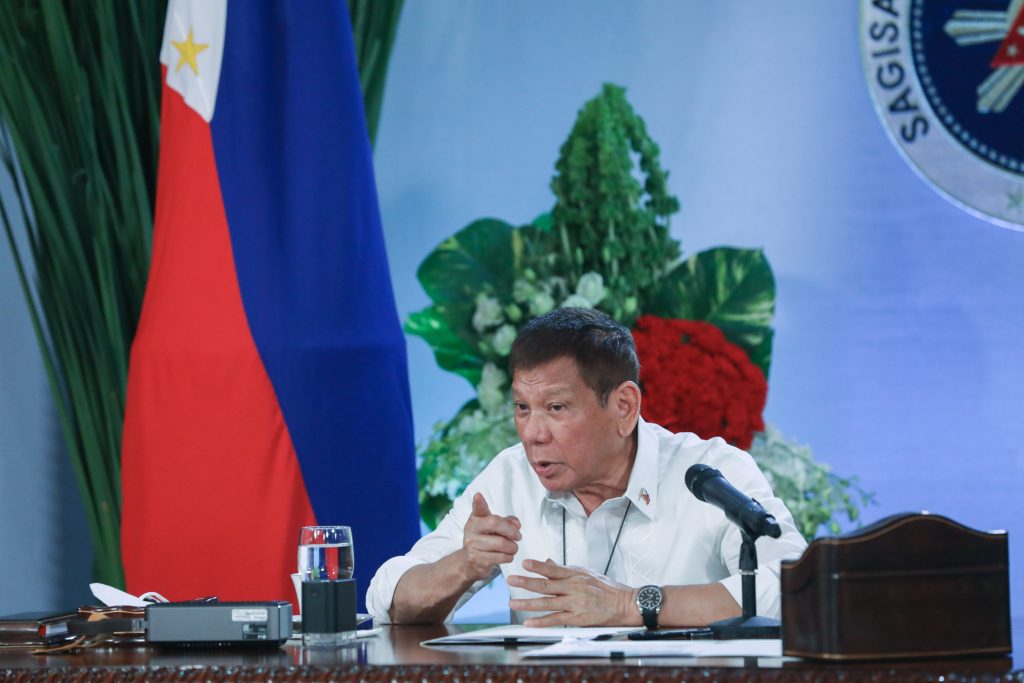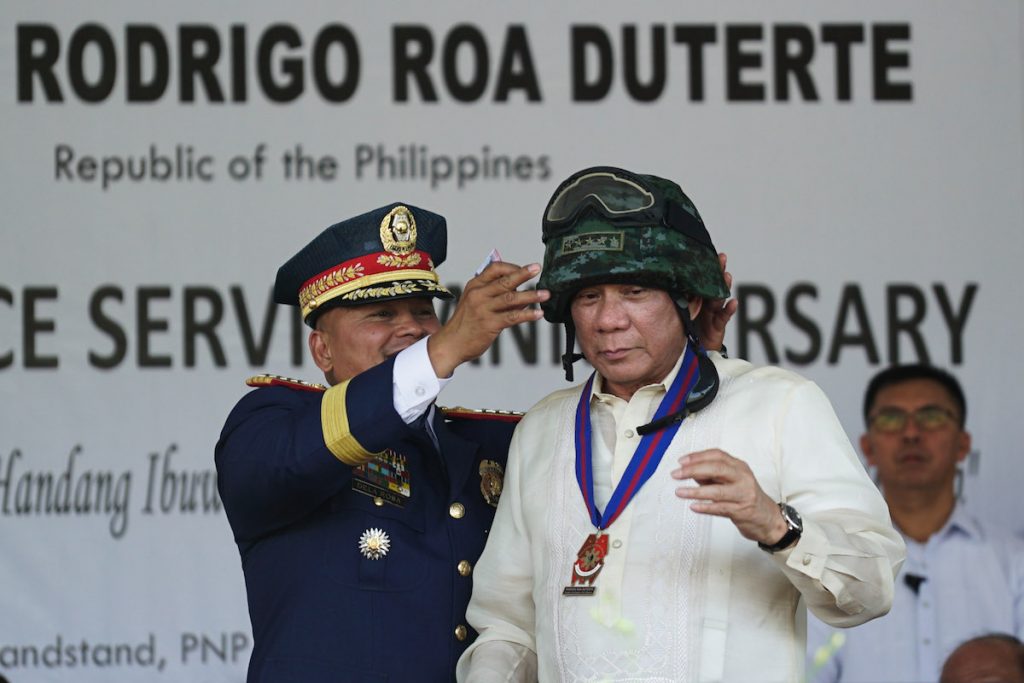
We’ve heard it said that “red-baiting” or “red-tagging” is a relic of the Cold War.
The Cold War is the term used to describe the tension between the United States and the former Union of Soviet Socialist Republics (USSR) right after World War II. It began in 1947 and fizzled, thereabouts, near the 1990s.
The Red Scare, or the fear of Communism, triggered a string of Senate investigations led by U.S. senator Joseph McCarthy. The Republican lawmaker from Wisconsin was a dominant political figure in the 1950s and launched his inquisition of suspected communists via “red-baiting.”
Red-baiting, the act of accusing people of being communists, sought to “expose” the infiltration of government institutions by Marxist subversives.
As all witch hunts go, McCarthy’s fanatical stunt eventually made a laughingstock of the investigations by including U.S. President Dwight Eisenhower, some of his Republican party mates, and military top brass in his list of “communists.”
Funny he should mention Eisenhower who signed the Communist Control Act of 1954. It was a piece of legislation which outlawed membership in the Communist Party of the United States. There is, however, no law banning the holding of Marxist ideology as this would go at loggerheads with the democratic principle of free thought.
McCarthy’s interrogation tactics were so vicious that it prompted Joseph Nye Welch, the U.S. Army’s special counsel, to call him out for his unsubstantiated, sensational and, by and large, brutal accusations. McCarthy’s red-baiting of fellow Americans forced many out of their jobs; others endured the fiercest condemnation from families, friends and colleagues.
Even as decades passed, the U.S. never really outgrew the Red Scare of the 1950s. In 2017, California officials shot down a bill seeking to strike out language from the California Code barring members of the Communist Party from working in the said state.
Today we see Lt. Gen. Antonio Parlade Jr., together with Presidential Communications undersecretary Lorraine Badoy, revive their version of the McCarthyism of the Cold War. This Neo-Nazi type, Pinoy version of the Red Scare comes fueled by President Rodrigo Duterte’s open hatred of Marxists, Leninists and Maoists—legal or underground makes no difference.
National Task Force to End Local Communist Armed Conflict executive director Allen Capuyan’s recent tirade, alleging that AlterMidya is a part of the CPP’s National Propaganda Bureau, is one of several instances where members of the alternative media are being discredited by uncorroborated accusations, feeding the fears of many who can’t tell between Communism and Journalism.

Allow me to conduct a virtual autopsy of this carcass from the ‘50s by first asking: Is Communism really the problem? Serious enough to warrant a bloody witch hunt which, more often than government admits, ends up in the murder or disappearance of those accused?
Duterte wants Filipinos to think so, given his liking to declare martial law should rebellion end up taking centerstage. His former friendship with some members of different communist factions, dropped like a hot potato in the middle of peace talks, may have warranted strong sentiments of betrayal on the part of the Left as a whole.
It’s therefore no exaggeration to say that Duterte’s hemming and hawing and using factions of the Left to his candidacy’s advantage has placed his presidency in an extremely uncomfortable light.
He has reason to be fretful. The Communist Party of the Philippines (CPP) does have an armed contingent—the New People’s Army (NPA)—fighting a decades-long revolution.
Oddly, though, in a desperate attempt to quash communist armed insurgency, Duterte chose rather to overthrow the Constitution and the Bill of Rights. His rationale: due process gets in the way of fighting fire with fire.
The thing is, the revolutionaries had started peace talks with State negotiators during the early days of the tokhang regime. This wasn’t the first time. Cory Aquino’s term saw government and the CPP-NPA on the negotiating table, but this was soon derailed by the Mendiola Massacre. The CPP-NPA has been trying to forge peace all across the next five presidential administrations since then.
What possible danger, therefore, could the CPP-NPA further inflict on the State if it’s aching for a cessation of conflict?
This is where it gets tricky. Duterte’s narrative that the ongoing armed rebellion would put our national security at risk of collapsing is no better than a hoax. On the contrary, talks about coming back to the negotiating table are still rife today.
This goes to show that Duterte has used communists as its foremost excuse—to thwart, bypass, even overthrow the people’s rights to advance his idea of dictatorial order. Looking at it closely, if there is any subverting of laws being done, those subverting the Constitution are far more guilty than anyone of subversion.
It is important for us to understand that if there is anyone endangering government, if there is anyone guilty of striking at the foundations on which this benighted republic stands, it is Duterte himself by launching his own “revolution” against the people’s Constitution.
If the trampling of our civil liberties does not endanger national security, I don’t know what will. And how does it endanger national security? Simple. National security is not only limited to the security of the State as a political organization. It likewise includes the protection of the body politic—the people. The Constitution ensures that safety.
Therefore, any threat to the Constitution is a threat to the nation’s structural, social, economic and legislative integrity.
This reminds me of the words of civil rights activist, Martin Luther King Jr. on his beloved America: “The greatest purveyor of violence in the world: my own Government. I cannot be silent.”
Which brings me to the point of all this. Rebellion, by definition, is the open resistance to the established order, government or ruler.
To safeguard that established order, a country must stand on a Constitution whereby the fundamental principles of governance, stability and civil rights are set in place.
This same Constitution ensures the protection of the people’s welfare from all enemies, foreign and domestic. It transcends the country’s leaders, administrations, or terms of office. It stands steadfast as the legal code on which the nation rests.
Follow me on this: if a dictator decides to thwart the Constitution in his bid to stay in power, and the people rise to the Constitution’s defense, is that rebellion?
It’s a fool’s errand to insist that the president—an avowed dictator—is only protecting the laws of the land in his mission to crush communists. It doesn’t take a PhD to know that Duterte is the biggest threat to the Constitution.
And it is our moral, legal and constitutional duty to deal swiftly with threats to the Constitution.
Joel Pablo Salud is an editor, journalist and the author of several books of fiction and political nonfiction. The views and opinions expressed in this article are those of the author and do not necessarily reflect the official editorial position of LiCAS.news.
Source: Licas Philippines
0 Comments